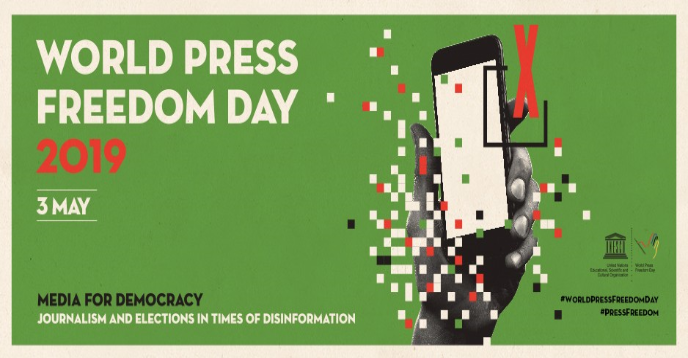By Simegnish Mengesha
When I was forced to leave Ethiopia in 2014, it was a dangerous time to be a journalist. Attempting to dig deeper into politics and be critical of the government had a price. A sweeping Anti-Terrorism Proclamation was systematically used to crack down against journalists and while some were thrown into jail with little recourse, others like me were forced into exile. According to the Committee to Protect Journalists (CPJ), for years, Ethiopia was the second worst jailer of journalists in Africa. By the time I left, CPJ reported that 17 journalists were in prison and, that year alone, more than 30 journalists were forced into exile.
Four years later, Ethiopian media seems to have landed in a new era. Since Prime Minister Abiy Ahmed took office in 2018, the country has garnered global attention as a rare bright spot where democracy appears to be gaining ground. Thousands of political prisoners—including journalists—were released. Diaspora-run media channels that were once banned, such as Oromo Media Network (OMN) and Ethiopian Satellite Television (ESAT), are allowed to operate from inside the country. New media houses are now flourishing. Abiy’s administration is also revising repressive laws such as the Anti-Terrorism proclamation and other media laws. Such an opening in a once heavily restricted media sector is giving many Ethiopians the space to speak their minds and air their grievances.
A year has passed since Ethiopian media welcomed such swift political changes. The cloud of fear is removed. In fact, many of my colleagues and friends who had left Ethiopia have now returned to be part of this change. But challenges still remain, and it seems to be a long way before we could reach the level of professionalism to which many of us aspire. A decades-long repressive environment has left the institution weak and fragile. A government that was repressive and controlling not long ago is now suddenly expected to be open and give out information even while repressive structures are still in place. Without the will and the capacity to address media requests, information flow remains controlled. This is still frustrating to many of my colleagues in Ethiopia.
The other main challenge I find threatening the future of Ethiopian media is the growing instrumentalization of the media by interest groups. Neutrality is the core of professional media, and one of its major duties is providing facts. Unfortunately, we are witnessing a wave of media outlets that are taking sides and serving as a tool to set a certain agenda. In a transitional period when we are experiencing ethnic tensions, I fear that such a press could be a danger in creating a more polarized society. The unsettled transition is also marked by communal violence and mob justice. Journalists are experiencing attacks by unknown groups, which indicates that there is still a risk for the media.
The media can be a platform for democratic discourse when it is an institution equipped with professional journalists and technical experts. Ethiopian media is way behind in that front. Journalists and media houses have long been occupied with fighting for freedom rather than strengthening their professional competence. The lack of distinction between fact and opinion is still evident. Most media houses also lack the economic capacity which hinders their ability to produce original content and information dissemination. New media houses are sharing the already narrow profit, thus shaking sustainability of both the old and new ones. This is causing the shift to use crowdsourcing as an option, which in turn leads to further erosion of neutrality and fairness.
Ethiopia is going through a historic transformation. The news media remains central to these radical changes. As the country prepares for the upcoming elections in 2020, it is essential that the media remains a safeguard for a transparent and democratic process. That is why it is imperative that reforms move faster. We need an institutional framework in place in time that provides protection and establishes clear responsibilities for the media. The news media should be engaged in the ongoing legal reforms to insure they create an environment that fosters sustainable and independent news publishing institutions. The political opening should be balanced by professional capacity development that includes tailored journalism, technology and marketing trainings. All of these actions are necessary to ensure that the Ethiopian media can overcome fear and turn the hope of democratic transition into a reality.
Simegnish Mengesha is a journalist and recent graduate from Georgetown University with Masters in Foreign Service.


Comments (0)